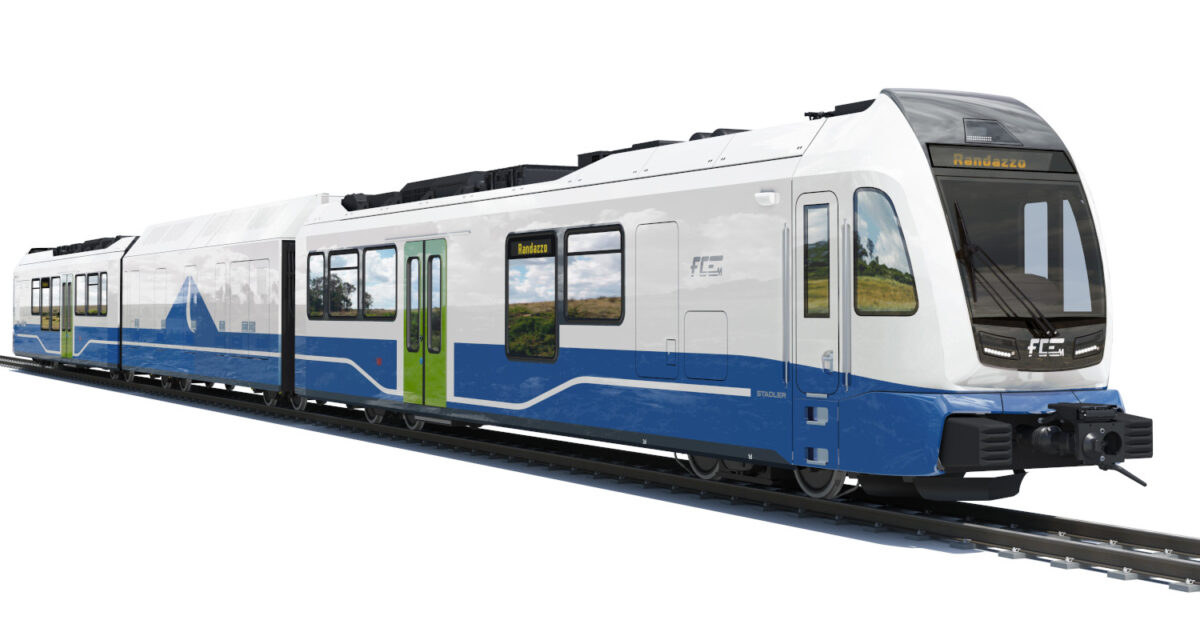Stadler strengthens its presence in Italy with the signing of its first contract with Ferrovia Circumetnea (FCE) for the design and supply of two narrow-gauge hydrogen trains. The trains will run through the volcanic landscapes of Etna in Sicily.
The agreement, signed during the EXPO Ferroviaria trade fair in Milan, also includes five years of full maintenance and the supply of spare parts. It also provides for the possibility of extending the order to a total of 15 units.
The new trains, which will be manufactured at Stadler’s Swiss headquarters in Bussnang, will have two passenger cars and a central “Power Pack” unit with fuel cells and hydrogen tanks.
Trenvista Premium te lleva directo, sin anuncios que hagan descarrilar tu lectura ni tu paciencia.
Únete por sólo 35€ al año, disfruta de contenidos exclusivos, más ventajas y cancela cuando quieras.
★ Empieza ahora
Each train will have 87 seats and a total capacity for 147 passengers, with low-floor access, adapted toilets and areas for bicycles and pushchairs.
Thanks to an axle load of less than 11 tonnes, the trains will be able to operate on the entire FCE narrow-gauge network. They will run on the Paternò-Randazzo line in the Etna Natural Park. With this contract, Stadler now has 19 hydrogen trains ordered for Italy, distributed between Sicily, Sardinia, and Calabria.
The hydrogen cell makes it possible to dispense with combustion engines on non-electrified lines, with greater autonomy than batteries. However, the technology requires electricity accumulators to start the trains.
